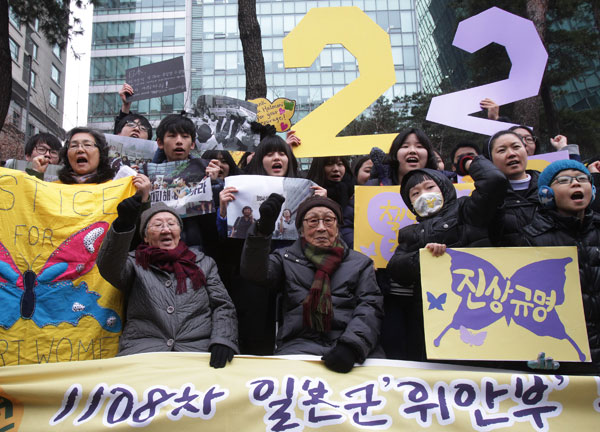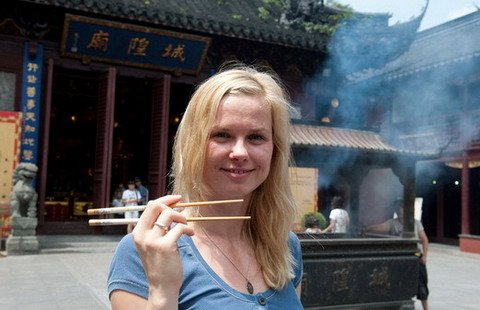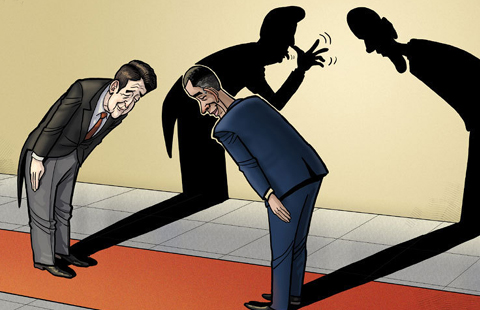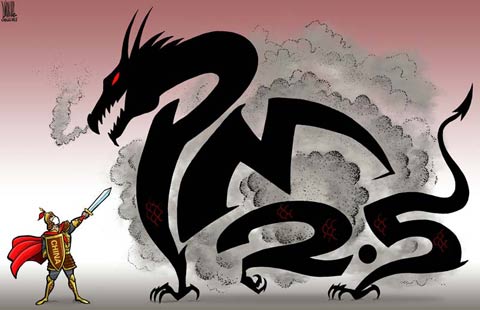History is teacher for Japan
(China Daily) Updated: 2015-01-15 07:39
 |
|
Former "comfort women" Kil Un-ock (bottom left) and Kim Bock-dong (bottom right), who were forced to serve Japanese troops as sex slaves during World War II, participate in a rally to commemorate the 22nd anniversary of the "Wednesday protest against Japanese government policy" in front of the Japanese Embassy in Seoul on Jan 8. Ahn Young-joon / Associated Press |
This year is the 70th anniversary of the victory against fascism. It is an important moment for human society to review history and look into the future. That's why the United Nations General Assembly has made commemorating the event one of the key parts of its agenda this year.
A nation's past facts are an inalienable part of its history, and how it sees history will decide a nation's future. Asia's development and cooperation, a long-lasting historical trend, cannot be fully realized without major nations in the region sharing a correct view of history.
The positive energy driving Asia's momentum comes from the rejuvenation dreams of Asian nations, and the ever-deepening cooperation from mutual trust, not profits.
As one of the most developed countries in the world, and one of the most important countries in Asia, Japan's attitude to the war it started, which incurred unforgettable hardship and losses for many Asian countries, will directly decide the depth and quality of Asia's cooperation in the future.
However, the capricious stance on history taken by many Japanese politicians, and their dangerous actions in recent years, such as attempts to amend the pacifist Constitution to pave the way for a full-fledged military, openly honoring war criminals as national heroes, and flaring up regional tensions over territorial disputes with neighbors, have seriously damaged the unity in Asia.
All efforts to get rid of or clip the constraints of history, rather than untying the historical knots, involve paying a cost for the "rebound" of history. Pretending to forget the past is a betrayal of history. Denying past crimes in effect constantly repeats the crimes. All discourses attempting to beautify and defend wars, however attractively packaged, harm peace and justice.
Misjudgments by itself and the general trends of human society at that time led Japan to start a disastrous war. That is a lesson Japanese leaders should bear in mind today.











